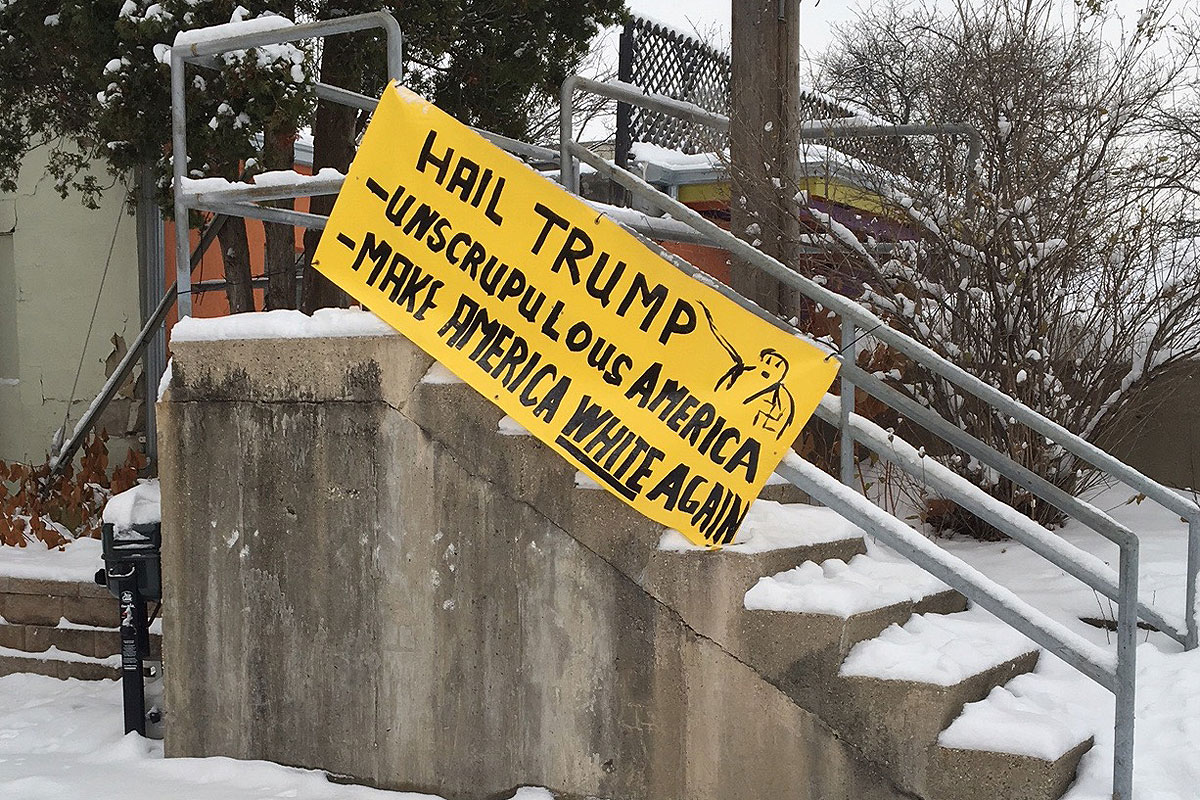A few days ago, the New Yorker's Adam Gopnik reflected on the inescapable word "norms" under the still-young Trump administration, and how he has overturned one after another. "Google 'Trump' and 'norms,' and you find a huge, alarmed journalistic literature," Gopnik writes, "enumerating the norms of political discourse that Trump has overturned that week or day—but those same pieces will also, more often than not, point out that, after all, overturning norms is what he was elected to do." (He's not exaggerating.)
There's certainly anecdotal evidence that this is the case; it comes up in interview after interview with Trump supporters. "Being [politically correct] was going to kill the country. He speaks his mind and because of that, he's not going to lie to you." "He's outspoken. Other candidates wouldn't tell you how it is, but he does." "They see a person who actually stands for what they've been thinking in their heads but were too afraid to say all these years."
There's also experimental evidence that Trump's approach is succeeding at changing norms, according to an intriguing working paper that Cass Sunstein wrote about at Bloomberg View, led by University of Chicago economist Leonardo Bursztyn. The study's results suggest that people were less likely to want to hide their xenophobic beliefs after November 2016 than before. "What was unacceptable and rarely, if ever, spoken, could become acceptable and normal in a matter of weeks, if not days," the researchers write.
It was a clever test to observe social norms evolving in real time. Prior to the election, they paid participants—in states that Trump had 100 percent odds of winning—fifty cents to take a short survey. As part of the survey, they were asked to authorize the researchers to make a $1 donation to a stringently anti-immigration organization. If they authorized the donation, they received an additional $1 on top of their fifty cents.
But half of the respondents were told that authorizing the donation would be completely anonymous. The other half were told that the researchers "might personally contact you to verify your answers"—raising the specter that others might find out about their willingness to fund the organization.
Before the election, 54 percent of the participants who were promised anonymity authorized the donation and got their dollar. Only 34 percent of those who weren't promised anonymity did the same.
Then they followed up with those same people after the election. The percentage of respondents who weren't promised anonymity, yet authorized the donation anyway, shot up to 48 percent.
They also found a similar effect from a different experiment: Prior to the election, they informed half of one group of respondents that Trump was all but guaranteed to win their state, and didn't mention that to the other half. Of the half that received that little social hint, 46 percent authorized the donation; of the half that didn't, only 34 percent did.
The setup is a bit tricky, but the results suggest two simple concepts. First, knowing that Trump has wide support (either from popularity within the respondents' states or from winning the election) nudged respondents to care less about preserving the anonymity of their support for an anti-immigration organization.
Second, Trump's popularity didn't necessarily make them more xenophobic; the authors argue that, if it had, people making anonymous donations would have increased as well. Instead, it made xenophobes (or those willing to profit in a tiny way from xenophobia), more willing to be open about such a view.
It's a small study, still in the works, and not on its own more powerful than the months of reported anecdotes from the campaign trail. "Nothing in these findings demonstrates that Trump’s election is leading to an erosion of social norms against incivility and hatred, let alone against violence. But they’re suggestive," Sunstein writes. One of the roles that social sciences play in our understanding of events is to perform a check on that understanding—and in this case, to see if there's a foundation for the sense that our foundations may be eroding.



